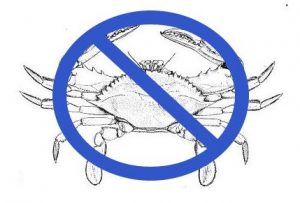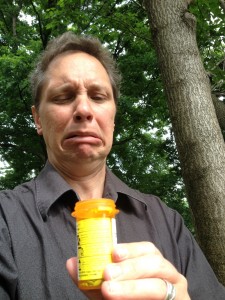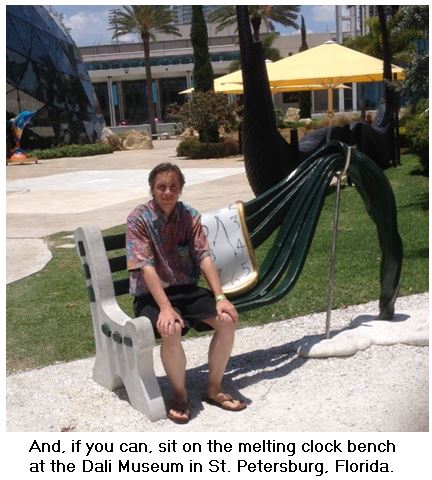Helloooo Nurse!
 If there was a good thing about getting chemo it was the nurses. Now that I type that out it sounds kind of inappropriate, but my feelings for my nurses were always purely platonic, except on those occasions when my feelings were, “Ow! Hey! That hurts! Watch it!” Now if I were thirty years younger and still single my feelings still would have been purely platonic because I’ve always been a realist and still would have known the only reason my nurses were nice while they were sticking needles in my arm is because they were nice and enjoy working with people and sticking needles in their arms, which is what prompted them to go into nursing in the first place. I had four rounds of chemo, a grand total of twenty-eight separate days of dealing with nurses. Most of them were straightforward, professional types who came in, handed me my meds, maybe gave me some apple juice, and then left until the IV bags were empty and my needle needed to be pulled out. Before the first week was over I’d had minor surgery to install a port in my chest, a large plastic bulb that they’d stick the needle into rather than wrecking my veins and making me come out looking like a heroin addict. Having a needle stuck in the port hurts a lot less than having it in a vein, and I could tell the really professional and experienced nurses because when they stuck the port it hardly hurt at all. And I quickly noticed that if they were using cold saline I’d get a cool feeling in my chest, sort of like a peppermint melting under my skin, and then I’d get a faint taste of salt in my mouth. Most nurses would smile and say, “Yes, a lot of people notice that.”
If there was a good thing about getting chemo it was the nurses. Now that I type that out it sounds kind of inappropriate, but my feelings for my nurses were always purely platonic, except on those occasions when my feelings were, “Ow! Hey! That hurts! Watch it!” Now if I were thirty years younger and still single my feelings still would have been purely platonic because I’ve always been a realist and still would have known the only reason my nurses were nice while they were sticking needles in my arm is because they were nice and enjoy working with people and sticking needles in their arms, which is what prompted them to go into nursing in the first place. I had four rounds of chemo, a grand total of twenty-eight separate days of dealing with nurses. Most of them were straightforward, professional types who came in, handed me my meds, maybe gave me some apple juice, and then left until the IV bags were empty and my needle needed to be pulled out. Before the first week was over I’d had minor surgery to install a port in my chest, a large plastic bulb that they’d stick the needle into rather than wrecking my veins and making me come out looking like a heroin addict. Having a needle stuck in the port hurts a lot less than having it in a vein, and I could tell the really professional and experienced nurses because when they stuck the port it hardly hurt at all. And I quickly noticed that if they were using cold saline I’d get a cool feeling in my chest, sort of like a peppermint melting under my skin, and then I’d get a faint taste of salt in my mouth. Most nurses would smile and say, “Yes, a lot of people notice that.”
I have a new respect and appreciation for nurses, but I guess it’s only natural that I would get to know some nurses better than others. Three in particular stand out. I’ve changed their names to protect their innocence even though the only thing they’re guilty of is jabbing me repeatedly with a large piece of metal.
Donna-After introducing herself Donna asked me, “Do you go by Chris or Christopher?” I told her “Chris” was fine and that the only people who normally use my full name are my wife and mother, and they only use it when they’re mad at me. “I’ll remember that,” she said. She was very brisk, very professional, but also very talkative. Donna excelled at multitasking, which I think was what made her such a great nurse. She could ask what I did for a living and what my plans were for the weekend while preparing my injection and drugs, all without missing anything. When she inserted the needle in my port I didn’t even feel it. When I told her I tasted saline she said sarcastically, “Everybody says that but I don’t believe it.”
After that I’d come in every day hoping Donna would be my nurse again. She wouldn’t be, but one day a couple of weeks later I’d get up to go to the bathroom only to find the closest one in use, and the next closest one also in use, so I had to wander all over the ward looking for an open bathroom. I finally found one and then realized I couldn’t remember where my room was. Donna was sitting at a desk and the third time I walked by her she snapped. “CHRISTOPHER ALLEN WALDROP, ARE YOU LOST?” She then turned to the nurse next to her and said, “I can call him by his full name because I’m mad at him.”
Dan-There’s a huge gender gap in the nursing profession. I’m not sure why, but most nurses are women, especially the famous nurses—Florence Nightingale, Mary Mallon, Walt Whitman. Interestingly when I was in college living in a dorm almost everybody on my floor was studying to be a nurse. That was before the administrators realized they’d accidentally put me in an all-women’s dorm, but that’s another story.
Dan was also talkative, but nicer than Donna. We talked about TV shows, what I did for a living, what our respective plans were for the weekend, and his tattoos. He had a couple of piercings, and when he put my needle in he did it with such grace I wondered if he’d done his piercings himself.
Lucy-More than any other Lucy made me appreciate that there’s nothing like a good nurse because she was nothing like a good nurse. I first met Lucy one morning when I was still in the waiting room and she came out to tell me my white cell count was so low she didn’t think giving me chemo would be a good idea, but she was checking with my oncologist to be sure. I know nurses are sometimes the last line of defense between patients and doctors, that doctors can make mistakes that nurses sometimes have to be there to catch, but she was trying to step in and make a medical decision. That didn’t bother me so much as the way she told me that my chemotherapy for testicular cancer might have to be put on hold until a mild cold would no longer be a major health risk. Having shared my diagnosis online I wasn’t exactly embarrassed, but I did wonder why she felt the entire hospital needed to know exactly what was going on at that moment.
Later she’d take me back for my infusion for the day. Fortunately this was a day when I was only getting a single short injection. Lucy prepped my port then without warning jabbed me with the needle. I felt like I’d been stung by a wasp. I gasped.
“Just take a deep breath.”
Thanks, Lucy. Most nurses told me to take a deep breath before inserting the needle—they gave me some warning, but then most nurses weren’t busy talking to someone else at the same time they were giving me my injection. Lucy would continue carrying on a conversation so I had to keep moving forward in my chair to prevent her from pulling out the needle. She noticed this and turned around to say, “Stay with me, honey,” before resuming her conversation.
Later I’d feel sick. A different nurse would tell me that sometimes happened when the drug was administered too quickly. I’m glad I’d been treated by Lucy. She made me appreciate the other nurses so much more.













